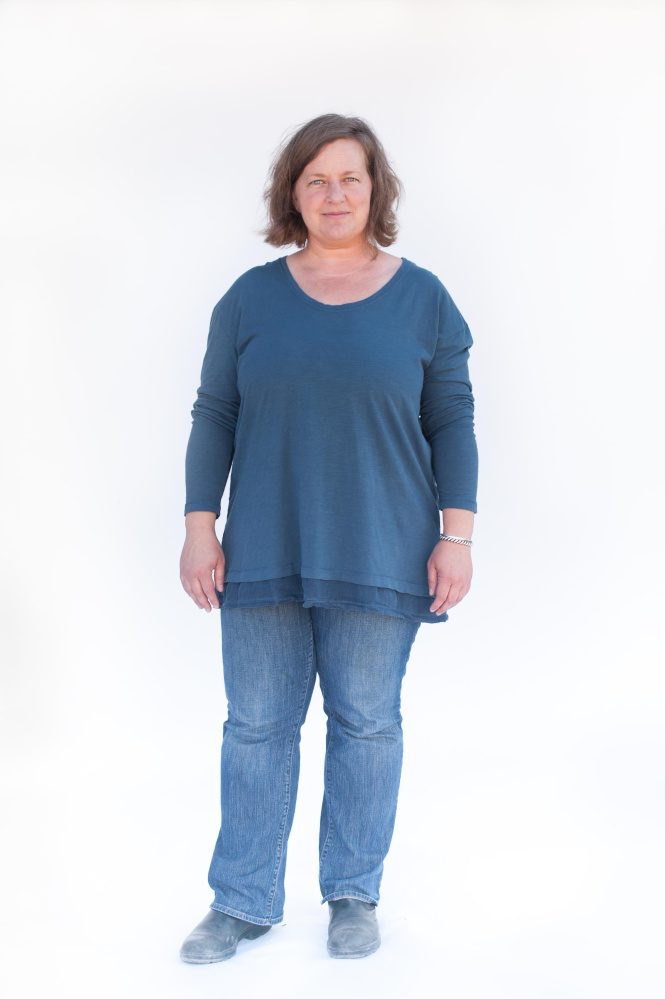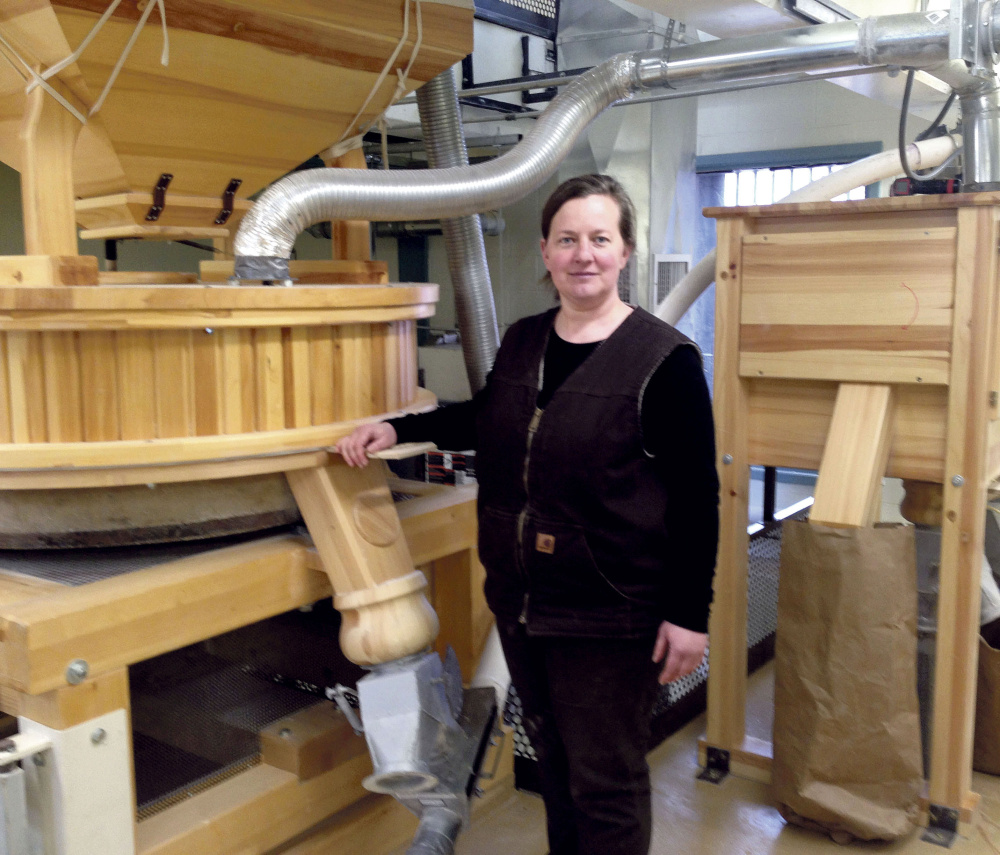SKOWHEGAN — The Skowhegan-based Maine Grain Alliance got a boost this week with the announcement of a $50,000 grant from the Maine Technology Institute as one of four high-potential business clusters in Maine.
The award will be used to study grain drying and storage systems on farms in Aroostook County, where 90 percent of the grains processed at the Somerset Grist Mill in Skowhegan are produced, said Amber Lambke, co-founder of the nonprofit Maine Grain Alliance and owner of the grist mill and Maine Grains, a specialty grocery store at the grist mill.
The institute’s Cluster Initiative Program awards were issued for projects supporting Maine’s agriculture, aquaculture, fisheries and food production and Maine’s composites and advanced materials cluster. The money comes with a one-to-one match from the recipient, either in cash or in-kind time or services.
The Maine Grain Alliance, founded in 2007 with the first Kneading Conference, received the award for a feasibility and planning project to inventory existing grain drying and storage and to research technologies and financing options to improve the process.
“The Maine Grain Alliance will spend that money hiring help to investigate Aroostook County farms that need increased amounts of grain storage and grain drying capacity to be able to scale up their grain growing operations,” Lambke said Wednesday. “There has been a lot of work done and attention paid to Aroostook County as a viable place to expand organic grain production to serve food and animal feed.”
She said farms that already are growing organic grains or are just beginning to produce grain in Maine’s northernmost county need improved drying and storage methods and space, a key “pinch point” or obstacle to the grain growing and harvesting economy.
Lambke said Aroostook County is the focus of the grant because the farms there are large, with open spaces where the use of harvesting combines would work well. She added that grains rotate well with potatoes, the county’s most notable crop.
“It matters to us because 90 percent of our grains currently are coming out of Aroostook County,” she said. “It also matters in Skowhegan because Skowhegan is in the densest belt of organic farms in the state, and organic dairy farms need affordable organic feed for cows.”
Tristan Noyes, of South Portland, the new executive director of the Maine Grain Alliance, hails originally from Aroostook County, Lambke said. His job is to oversee the growth of the alliance, working with program director Erin Scally in sustaining a heritage grain project aimed at determining which strains of wheat and rye being grown in a new study are best suited to flourishing in Maine.
“We’re incredibly excited to be involved in this work to help look at one of the bottlenecks that exist around getting grain to a place where it needs to go,” Noyes said Wednesday. “That means having the appropriate drying, sorting and storage of the grain. We’re hoping to look at this in an innovative way to address some of the critical needs to scale organic grain to meet the market demand in Maine.”
The Maine Grain Alliance provides opportunities to learn and share how best to grow and use grains, using a combination of traditional and innovative, sustainable techniques, according to the group’s social media page. The alliance promotes beneficial uses of grain to establish food independence, good health and purposeful jobs.
Lambke, with her business partner Michael Scholz, purchased the stone-and-steel former Somerset County Jail in 2008 for conversion into a grist mill. She said she turned over the reins of the alliance to Noyes to concentrate on the business, which doubled production this year over 2015.
There currently are 10 jobs at the grist mill, and production of wheat, rye, oats and other grains is on track to surpass 800 tons this year, she said.
Brian Whitney, president at the Maine Technology Institute, said the four awarded projects will “advance and stimulate” economic activity in the target areas.
“They will enhance collaboration between public and private sector entities, improve our innovation infrastructure to increase Maine’s competitiveness, and help emerging companies gain access to capital that will lead to the development of new businesses, products, processes, skilled workforce, and jobs,” Whitney said in a statement.
These are the other award recipients:
• FocusMaine, in partnership with Gulf of Maine Research Institute and the Maine Aquaculture Association, received $219,600 to develop and maintain business planning tools to support efficient growth and unlock access to traditional financing for aquaculturists, and to create an open source small business resource, building on Maine’s competitive advantages.
• The Midcoast Regional Redevelopment Authority of Brunswick received $495,165 to develop TechPlace’s Shared Composites Layup Room and Paint Booth for use by TechPlace tenants and other scale-up composites companies.
• The University of Maine Advanced Structures and Composites Center received $438,046 for the establishment of a Smart Materials Industry Consortium and Smart Materials Lab in Orono.
Doug Harlow — 612-2367
Twitter:@Doug_Harlow
Send questions/comments to the editors.





Comments are no longer available on this story